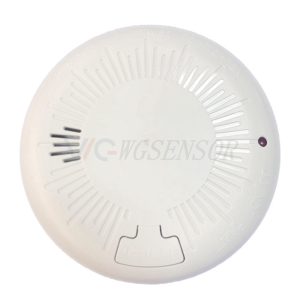Smoke detectors are critical safety devices designed to detect the presence of smoke or fire in various environments, providing an early warning to inhabitants or relevant authorities. These detectors are employed in a wide array of settings, playing a crucial role in fire prevention and safety management.
Applications:
1. Residential Areas: Smoke detectors are commonly installed in homes, apartments, and condominiums. They serve as a first line of defense against house fires, safeguarding residents and property by alerting them to potential dangers early on.
2. Commercial Buildings: Offices, retail stores, warehouses, and other commercial spaces utilize smoke detectors to ensure the safety of employees, customers, and valuable assets. These detectors are essential for complying with building safety codes and regulations.
3. Industrial Facilities: Manufacturing plants, factories, and industrial complexes heavily rely on smoke detectors as part of their fire safety protocols. Early detection is crucial in these high-risk environments to prevent large-scale disasters and protect workers.
4. Public Spaces: Public buildings such as schools, hospitals, airports, and libraries prioritize the installation of smoke detectors. These devices contribute significantly to crowd safety, enabling timely evacuations and minimizing the risk of casualties in case of a fire outbreak.
Functions:
1. Early Detection: Smoke detectors promptly identify the presence of smoke particles in the air, activating alarms to warn occupants of potential fire hazards. This early warning is crucial for swift evacuation and fire containment.
2. Alert Systems: They are integrated with audible alarms or visual signals (such as flashing lights) to immediately notify individuals within the vicinity of the potential danger. These alerts prompt people to take necessary actions to ensure their safety.
3. Integration with Fire Suppression Systems: In some cases, smoke detectors are interconnected with fire suppression systems like sprinklers, enabling an automatic response to mitigate the fire at its onset.
4. Monitoring: Many modern smoke detectors are equipped with continuous monitoring capabilities, ensuring round-the-clock protection against fire threats.
In essence, smoke detectors are indispensable components of fire safety systems, serving as proactive measures to mitigate the devastating effects of fires. Their widespread deployment across various environments underscores their importance in safeguarding lives and property.


Please contact us for free quotation by form below. We promise the quickest response within 24 hours: